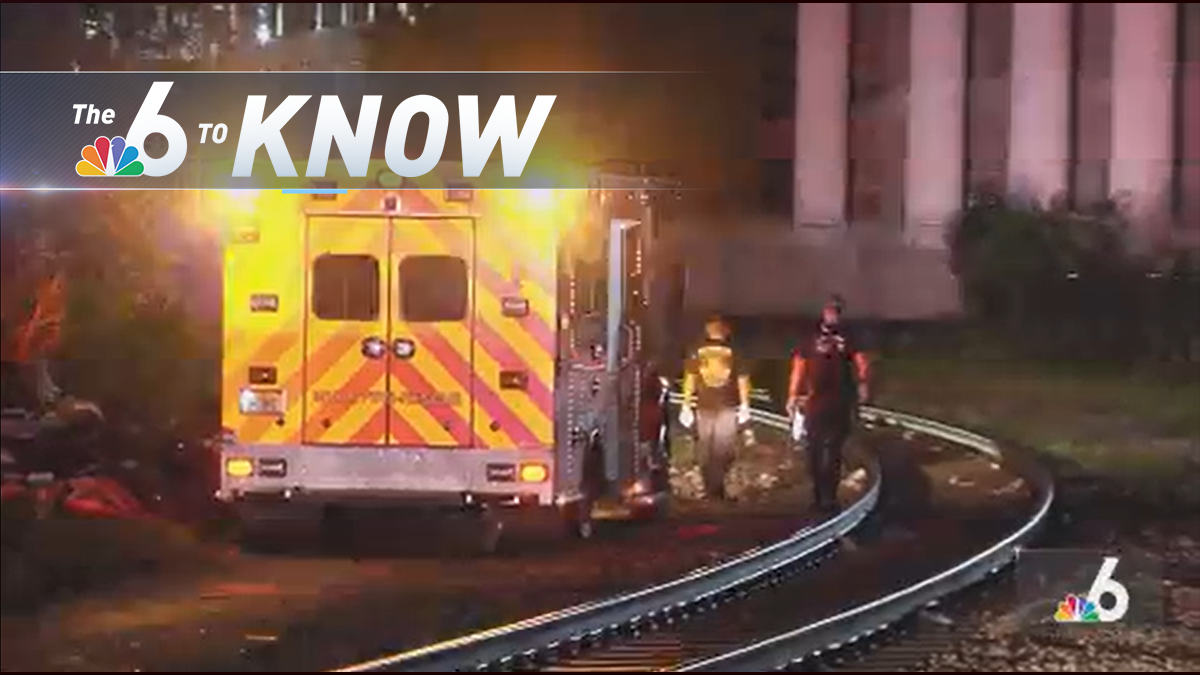Two South Florida railroads are missing the deadlines for train safety systems. NBC 6’s Tony Pipitone reports.
The Federal Railroad Administration is warning two South Florida commuter railroads they are at risk of missing a mandated deadline to install a critical safety system onto their trains.
Both Brightline and TriRail were informed last month that they appear to be falling behind schedule to fully implement a technology called “positive train control” by the end of the year.
In 2008, Congress gave railroads until 2015 to install the technology, which overrides humans to correct their errors before trains can derail, collide with other trains or work crews, or steer onto the wrong tracks.
But railroads protested and the deadline was moved to Dec. 31, 2018.
Now some railroads are proposing substitute systems to appease the FRA, which they could later ask to extend the deadline to Dec. 31, 2020.
The National Transportation Safety Board estimates hundreds of lives lost in derailments, collisions and accidents would have been saved over decades had PTC been in use.
“It is sad to see accident after accident that could have been prevented by PTC,” NTSB Chairman Robert Sumwalt said. “It is frustrating to go to accident after accident that could have been prevented if someone would have implemented an NTSB recommendation.”
Local
Labor unions, whose workers are most often at risk of accidents, agree.
“I’m embarrassed, I’m hurt, I’m frustrated … when I hear again and again of an accident that could’ve been prevented by PTC,” said John Tolman, vice president of the Brotherhood of Locomotive Engineers and Trainmen.
And those who ride the rails also can’t understand why the life-saving technology is not yet in place,
“Yeah, they need to get on the ball like yesterday, like ASAP,” said Shamika Innocent, as she waited for her mother to arrive at a Hialeah train station. “My mom’s life is in their hands.”
But once again some in the railroad industry are angling for a delay in the mandated PTC implementation.
They complain there are too few vendors and suppliers who produce and install the systems and that the FRA may not have enough employees to inspect and certify all the systems by the end-of-the-year deadline.
Before they may seek an extension of the deadline to 2020, Brightline and TriRail have proposed substitute criteria to the FRA’s proposed schedule.
Brightline last month requested it be allowed to have the system fully running on only 10 miles of its 67-mile commuter rail system – about 15 percent of its track. FRA said that request is under review.
TriRail took another approach, proposing to install PTC on all 72 miles of its track, but only testing it at first on trains that are not occupied. FRA has approved that request.
But the agency says both operations will still be required to have all PTC hardware in place by the end of the year and train all employees, before it can request a delay to as late as December 2020.
The NTSB is not thrilled about the possibility of more delays.
“Any delay in implementing positive train control, from a safety perspective, is unacceptable,” Sumwalt said.
But it’s not the NTSB’s call.
Even the FRA cannot shut down a railroad that misses the deadline, a spokesman said. It can issue fines, but the agency told Congress it has not yet decided if it will exert that authority against those railroad show miss the deadline.
AMTRAK and most of the largest freight-heavy railroads are on course to have PTC installed on time, according to FRA data.
Brightline, which is operated by Florida East Coast Industries, said in a statement they “are working closely with the Federal Railroad Administration to meet critical milestones during the implementation of Positive Train Control that meet statutory requirements.”
TriRail said it still expects to meet the end of the year deadline, but the process has not been quick, easy or cheap.
“In 2015, a lot of people didn’t realize that positive train control is not something you can just get off the shelf,” said Mikel Oglesby, TriRail deputy executive director. “As everyone learned and we moved forward, it costs more than expected.”
For TriRail, the original estimate of $20 million doubled to $40 million.
As for sanctions from the FRA, Oglesby said the agency is not too concerned.
“Well, the good news is since we’re on schedule and on target, we’re not even thinking about that, but should it come to that point, we’ll cross that bridge when we come to it.”
The American Public Transportation Association says the commuter rail industry has made significant progress over the past year to implement PTC. APTA says it’ll cost the industry more than $4.1 billion to implement PTC which it says diverts funds from other infrastructure and safety priorities. It says the industry has faced “significant financial constraints and technical challenges in implementing PTC.” It says one problem is a limited number of vendors qualified to meet the demand of both the passenger and freight lines.



